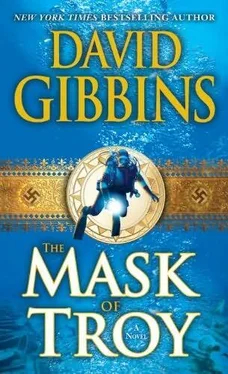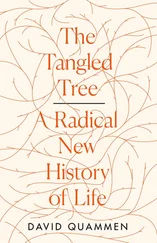David Gibbins - The Mask of Troy
Здесь есть возможность читать онлайн «David Gibbins - The Mask of Troy» весь текст электронной книги совершенно бесплатно (целиком полную версию без сокращений). В некоторых случаях можно слушать аудио, скачать через торрент в формате fb2 и присутствует краткое содержание. Жанр: Триллер, на английском языке. Описание произведения, (предисловие) а так же отзывы посетителей доступны на портале библиотеки ЛибКат.
- Название:The Mask of Troy
- Автор:
- Жанр:
- Год:неизвестен
- ISBN:нет данных
- Рейтинг книги:3 / 5. Голосов: 1
-
Избранное:Добавить в избранное
- Отзывы:
-
Ваша оценка:
- 60
- 1
- 2
- 3
- 4
- 5
The Mask of Troy: краткое содержание, описание и аннотация
Предлагаем к чтению аннотацию, описание, краткое содержание или предисловие (зависит от того, что написал сам автор книги «The Mask of Troy»). Если вы не нашли необходимую информацию о книге — напишите в комментариях, мы постараемся отыскать её.
The Mask of Troy — читать онлайн бесплатно полную книгу (весь текст) целиком
Ниже представлен текст книги, разбитый по страницам. Система сохранения места последней прочитанной страницы, позволяет с удобством читать онлайн бесплатно книгу «The Mask of Troy», без необходимости каждый раз заново искать на чём Вы остановились. Поставьте закладку, и сможете в любой момент перейти на страницу, на которой закончили чтение.
Интервал:
Закладка:
‘Ah,’ Dillen murmured. ‘That explains it. The mysterious deformed skeleton. It’s in Schliemann’s book.’
‘It was apparently in very poor condition,’ Hugh said. ‘But the boy recognized the misshapen skull. It was from a Bronze Age cemetery the team had been excavating outside the city walls just below the Lion Gate, and then abandoned once Schliemann realized they were just humble graves, not royal tombs.’
‘Why on earth would they do that?’ Rebecca said. ‘Put a skeleton into Agamemnon’s grave?’
Hugh held up his hand. ‘Before that. To Troy, fourteen years later. Night after night the man watched Schliemann and Sophia disappear off into the ancient citadel mound to dig alone, just as they had done in 1873 when they uncovered Priam’s treasure beside the great trench. Only this time the dig was much more secretive, in a part of the citadel to the west that remains unexcavated today. The last time he saw them digging was the evening after the end of the second Troy Congress, held at the site in March 1890. Schliemann had sat down with the boy, the man, for a few minutes before the congress, and seemed to want to confide in him. He said he’d known all along that Priam’s treasure dated a thousand years before Homeric Troy, but only at this congress would he finally acknowledge it.’
‘Which he did,’ Dillen murmured. ‘It’s on record.’
Hugh nodded. ‘But it wasn’t an act of humility. Not Schliemann. No, he told the man that he’d misdated the treasure deliberately, to make it seem as if the greatest treasure of Homeric Troy had been found. He had wanted to deflect attention from the real revelation he and Sophia believed they had begun to unearth in 1873. Only now, in 1890, had Schliemann reached the point in his discoveries at Mycenae and around the ancient world when the time was right to return to Troy, to finish the excavation, to make that revelation. The man knew it must have something to do with the secret digging. That very night, Sophia laid a trail of little candles from the site entrance to the tunnel in the western perimeter. It was typical Schliemann, very theatrical. And the man soon realized why. All of the delegates to the conference had gone, but three new men arrived. They were clearly important men, travelling incognito. The man never saw the faces of two of them, and afterwards they left before he could get close enough to see. He was too far away to hear their conversation. But the third man he recognized.’
‘Who was it?’ Dillen asked.
‘Schliemann frequently returned to America to manage his business empire, and on one occasion he took the boy with him. They’d gone to Washington and stayed with one of Schliemann’s benefactors from his early days as an entrepreneur at the time of the California gold rush. They’d maintained a close but secret friendship ever since. The man’s name was George Frisbie Hoar.’
‘ George Hoar,’ Dillen exclaimed, thinking hard. ‘Good God. Yes, that makes sense. Hoar was a prominent antiquarian, a patron of the Smithsonian Institution and the Peabody Museum at Harvard. But he was more than that. Far more. He was one of the most prominent American politicians of the second half of the nineteenth century. That’s why Schliemann would have courted him. Hoar’s was a voice of moderation and humanity, famously warning against American imperialism and foreign wars. By 1890 he’d been a senator for years, one of the most respected in the House. If you were going to choose the most important American politician of the time, you might have put Hoar above any incumbent president.’
Hugh reached back and picked up a heavy hardbound volume from his desk, handing it to Rebecca. It had lavish embossing on the cover, a golden bull’s head, the horns curving upwards. ‘That’s Schliemann’s account of his excavations at Mycenae, where he describes the Mask of Agamemnon,’ he said. ‘I had that actual volume with me on the dig in 1938, and I’ve been reading it again for the first time in years. I remember your dad poring over it when he first came to visit me. His eyes just lit up when he saw the account of the mask. Now, take a look at the inside cover.’
Rebecca carefully opened the book. Dillen leaned over, and saw a pasted coat of arms with the word HOAR in Gothic script beneath. ‘It’s a complete coincidence, pretty amazing, but these things happen,’ Hugh said. ‘I bought this book on a visit to New York City the year before Peter and I were in Greece, in 1937. Some of the contents of Hoar’s library were for sale and I was expanding my archaeology collection. I’d inherited some money and spent it on books.’
‘That’s it!’ Rebecca exclaimed excitedly.
‘What?’ Dillen said.
‘That coat of arms! The double-headed griffin! You remember the golden ring, the one Hiebermeyer found yesterday in the excavation? Dad said he’d seen the emblem somewhere before, but couldn’t remember. This was where!’
‘Good God,’ Dillen murmured. ‘I do believe you’re right.’ He stared at the arms, then turned to Hugh. ‘Yesterday afternoon, Maurice was digging in a tunnel under Troy and found a Victorian signet ring, with exactly that motif on it. We assumed it was somehow lost by one of Schliemann’s well-to-do guests.’
‘And now we know who it was,’ Rebecca exclaimed.
‘A tunnel, you say,’ Hugh murmured, staring hard at Dillen. ‘ A tunnel. I’ve kept up with the excavations of the last few years. You mean the watercourse tunnel they found on the south-west part of the site, leading to the spring?’
Dillen shook his head. ‘Something I was going to tell you, and it may as well be now. It’s extraordinary. In the last few days Maurice has found a passage under the Homeric citadel, a deep trench with inward-sloping sides in the same masonry as the city walls, clearly late Bronze Age. That watercourse may perhaps lead to it, to whatever lies at the end. We don’t know. Maurice hasn’t got there yet. What we do suspect is that it was some kind of monumental entranceway, not to the citadel but to something underneath. The walls were lined with stone stelae, some with inscriptions. Maurice thinks he’s even seen hieroglyphics. And there’s a colossal sculpted head of a king, like a gate guardian. Rebecca and Jeremy found it.’
Hugh continued staring hard at him, then reached over to his desk and took a scuffed old sketchpad from the pile. He held it closed for a moment, deep in thought, then opened it and leafed through to a double-page pencil drawing in pastel colours. He carefully turned the open book around, and handed it to Dillen. ‘You mean like this?’
Dillen took it, and gasped. The sketch showed an entranceway as he had just described, but with two gate guardians, one on either side. ‘That’s incredible. Where on earth is this?’
‘The old man described it to us, when we spoke to him at Mycenae in 1938. This is what he saw that night under Troy.’
‘Good God. This is it. This is what Maurice has found.’ Dillen looked across. ‘You’ve kept this a closely guarded secret.’
Hugh paused. ‘It’s been hard for me to look at that again. It’s been locked away, since the war. That’s Peter’s drawing. Based on the old man’s description. Peter was quite a good watercolourist. He was always trying to frame what he saw. He told me once when we met up before Cassino that he did that after battle, to try to take one step back from what he was really seeing, from the carnage and the horror. ’
‘It looks so much like the entranceway to a tomb,’ Rebecca murmured. ‘Like the Treasury of Atreus at Mycenae.’
‘That’s exactly what the old man said,’ Hugh replied enthusiastically. ‘We were there, at Mycenae, and he showed us. And he was convinced that it’s what Schliemann thought, too. That somewhere at the end of the passageway was a tomb, a treasury, right under the palace of Troy. But this passageway, as much as you see in this drawing, was as far as Schliemann and Sophia got.’
Читать дальшеИнтервал:
Закладка:
Похожие книги на «The Mask of Troy»
Представляем Вашему вниманию похожие книги на «The Mask of Troy» списком для выбора. Мы отобрали схожую по названию и смыслу литературу в надежде предоставить читателям больше вариантов отыскать новые, интересные, ещё непрочитанные произведения.
Обсуждение, отзывы о книге «The Mask of Troy» и просто собственные мнения читателей. Оставьте ваши комментарии, напишите, что Вы думаете о произведении, его смысле или главных героях. Укажите что конкретно понравилось, а что нет, и почему Вы так считаете.












